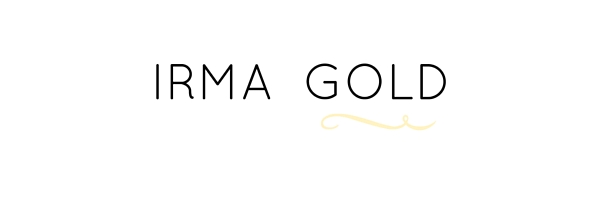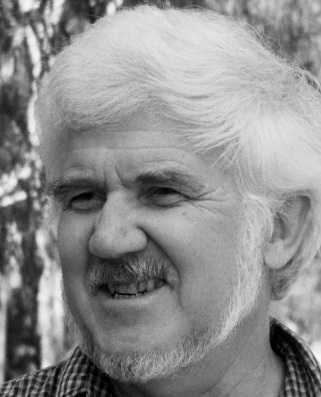 Sixteen years ago, in my first year living in Canberra, writer and editor Susan Hampton made a lasting impact on me. She was my tutor in first year creative writing, and she was fierce and brilliant. She seemed able to reference or quote from every book ever published. She never gave false praise; her honesty could be brutal. And I loved every second of her class.
Sixteen years ago, in my first year living in Canberra, writer and editor Susan Hampton made a lasting impact on me. She was my tutor in first year creative writing, and she was fierce and brilliant. She seemed able to reference or quote from every book ever published. She never gave false praise; her honesty could be brutal. And I loved every second of her class.
A pivotal moment occurred early on. The first time we had to present a piece of creative writing I suffered serious writer’s block — to this day the worst I’ve ever had. I wanted to impress, to show that I could really write, but nothing I came up with was good enough. In the end I resorted to bringing in a story that I’d written in Year 12. Back then — and this was some time previously because I didn’t begin studying writing until I was 23 — it received top marks, was selected for publication in the annual school magazine, and was praised in the highest terms. That is, until Susan’s class.
We had to read our piece out. I don’t remember exactly what Susan said but I do remember the words ‘twee’ and ‘clichéd’. She ripped it apart. And it was the best thing that could have happened to me. I realised that if I really wanted to be a writer I was going to have to do a whole lot better. Later that year Susan quoted a line from a story of mine in her book, A Latin Primer, so I felt that I must have redeemed myself. And now here I am, the editor of an anthology in which Susan’s work is included. Sixteen years ago I couldn’t have contemplated the possibility. So it seems like an apt moment to interview Susan about writing, reading and editing. Given all of the above I couldn’t help starting with the following question.
IG: Susan, there’s been plenty of debate about the value of university creative writing programs and whether creative writing can be taught? Given your experience, what’s your view?
SH: Probably it can’t really be taught. I have a few successful students from 30 years of teaching, that is, publishing with big presses, winning prizes, etc. They were already pretty good when I met them. Most students end up in related work: arts administration, making crossword puzzles, the front desk of the National Gallery, web editing, journalism, radio, TV, teaching. Some then leave it alone altogether. Renounce their urges. You have to be obsessed, and voluntary poverty can be a good skill. That said, Kate Grenville went to writing school in Colorado, and Flannery O’Connor and I think Carson McCullers spent time at Yaddo. Being around other writers can help a lot if you have the spark and the grit.
IG: Does your work as an editor have an effect on your writing?
SH: The more bad writing you read the more you see what not to do. But that’s only what not to do. And when they do a good thing, which happens now and then, you can’t take it, just admire it.
IG: Your poem, ‘Banquet of the Invisibles’, is included in The Invisible Thread. Where did it come from?
SH: ‘All gods are invisible,/ made from mere suggestion’ it starts, but where this came from is a mystery. I did have a discussion about god or gods with my niece, whose response was totally secular. She served me up a dose of logic. That said, the actual words she or I said, I didn’t remember and had to make them up for the dialogue between us in the poem. We laughed about this after the book was launched. I even made up that she was doing a project on good and evil, and practising drawing pictures of the devil. Totally made up. So beware anything presenting itself as innocent autobiography. The gesture of autobiography is often simply a means to an end. My niece was thirteen, old enough to rebut an adult and to understand that the poem while not true in a literal sense, made ‘sense’ of our discussion.
IG: What book has had the most significant impact on you and why?
SH: No individual book. But a book I would never sell is Cocteau’s On the Film. He is supposedly speaking off-the-cuff, but it’s brilliant.
IG: What books are currently on your bedside table?
SH: Nabokov’s Speak Memory. It’s my fourth attempt to read it, and this time I am immersed enough to continue. His sentences and thoughts can be very beautiful, but I found it hard going for a while as I did not grow up in a city with sleighs and balls, or on a country estate with fifty servants, and people putting my shoes on and parents hiring French German and Latin teachers to keep me occupied while I was between bouts of butterfly catching and classifying from my mother’s ancient etymological texts; nor was my father assassinated; nor was most of my life spent in exile because my family’s extensive estates were confiscated by a new government. I found it easier to read Camus’ The First Man and his Notebooks, which are manna to a writer. I reread Susan Sontag’s Against Interpretation and Stein’s essay on composition, saw more things than I saw before. Stein is really very world-weary and very witty. I can see why Hemingway went to her for advice, and her advise to lose the adjectives I think really helped him forge his famous style.
IG: You run a number of book groups through the library. What are the benefits for you as a reader and writer?
SH: It allows me to reread loved books and find new ones in the company of other people who want to find out what makes a narrative work, or understand layers of meaning in a poem, and how sometimes a meaning is all in the surface. Any job which pays you to read what you want to be reading is in my view a great job. It satisfies the reader and the writer in me. I like to the broad range of opinion in any group — the fierce arguments.
Susan Hampton will be reading her Invisible Thread poem at an evening of readings on 14 March at Paperchain Bookstore. Other readers are Bill Gammage, Marion Halligan, Geoff Page, Suzanne Edgar and Julian Davies. All welcome. Details are here.






